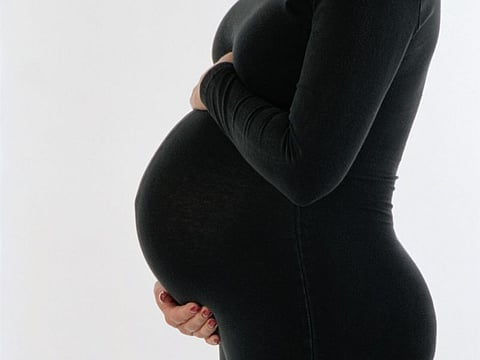THURSDAY, March 23, 2017 (HealthDay News) -- Surviving a cancer when young may leave some women with another health issue: An increased risk for certain pregnancy complications.
That's the conclusion of a new study of more than 15,000 births to teen and young adult women, aged 15 to 39, living in North Carolina.
Those who were cancer survivors had a higher risk for preterm birth, cesarean delivery and low birth weight infants, the researchers said.
"While we believe these findings are something women should be aware of, we still have a lot of work to do to understand why this risk is becoming apparent, and whether or not the children who are born preterm to these women go on to develop any health concerns," said study author Hazel Nichols. She's an assistant professor in the School of Global Public Health at the University of North Carolina.
One ob/gyn said that, given the effects of cancer treatment, the findings are "not surprising."
"Every effort should be made to monitor patients with a current or past history of cancer very carefully for signs and symptoms of preterm labor, nutritional status and fetal growth," said Dr. Jill Rabin. She's co-chief of ambulatory care in Women's Health Programs at Northwell Health in New Hyde Park, N.Y.
The study was published online March 23 in the journal JAMA Oncology.
In the research, Nichols team compared complication rates between 2,600 births to teen and young adults cancer survivors and nearly 13,000 births to women in the same age group with no history of cancer.
The cancer survivors had a higher risk for preterm birth, cesarean delivery and low birth weight infants, the researchers found. The risks were highest among women diagnosed with cancer during pregnancy.
Rates of preterm birth -- delivery before 37 weeks -- were 13 percent among cancer survivors and 9 percent among those with no history of cancer.
Certain types of cancer were associated with the highest risk of preterm birth. Compared to women with no history of cancer, the risk of preterm birth was three times higher among those who'd had gynecologic cancers, two times higher among breast cancer survivors and survivors of non-Hodgkin lymphoma, and 60 percent higher for those who'd had Hodgkin lymphoma, the study found.
"We found that women were more likely to deliver preterm if they've been treated for cancer overall, with greater risks for women who had chemotherapy," Nichols said in a university news release.
And while cancer survivors are at increased risk for these pregnancy complications, the study also has a positive side, she added.
"These are risks that are important to understand, but also should be considered in light of the fact that these women went on to start their families, or complete their families. So that's a very positive event," Nichols said.
"One of the things that's exciting about this work is we identified thousands of women who went on to have a child after they were diagnosed and treated for cancer," she noted.
And Nichols noted that there's much women can do to preserve healthy fertility before and after cancer care.
"We know that cancer treatment can have an impact on fertility, and it's only after puberty that some of the options exist to either freeze eggs or freeze embryos, or take other steps to protect fertility. So this is a time period when it's important to counsel women on what their reproductive risks are for cancer therapy, or what they can expect in the future," she said.
Rabin agreed.
"This paper raises an important issue -- that of the importance of pretreatment counseling both for women who are diagnosed with cancer considering pregnancy and those who are pregnant at the time of diagnosis," she said.
Dr. Navid Mootabar is chair of obstetrics and gynecology at Northern Westchester Hospital in Mt Kisco, NY. He agreed with Rabin that it's key to provide "adequate pregnancy counseling to adolescent and young cancer survivors in order to help them assess and reduce risks prior to conceiving."
"Close monitoring in pregnancy can result in improved outcomes," he added. "Women who are diagnosed with cancer in pregnancy already face adversity. By monitoring for potentially adverse events, it may be possible to prevent harming the growing fetus."
More information
Cancer.Net has more on pregnancy after cancer.


